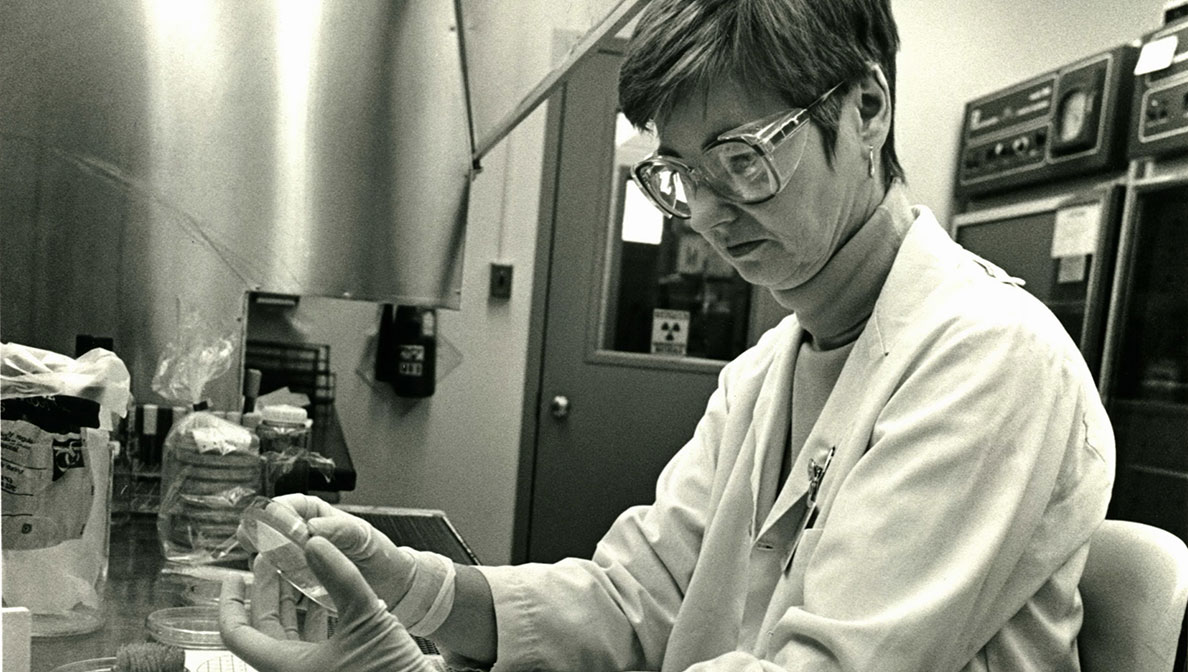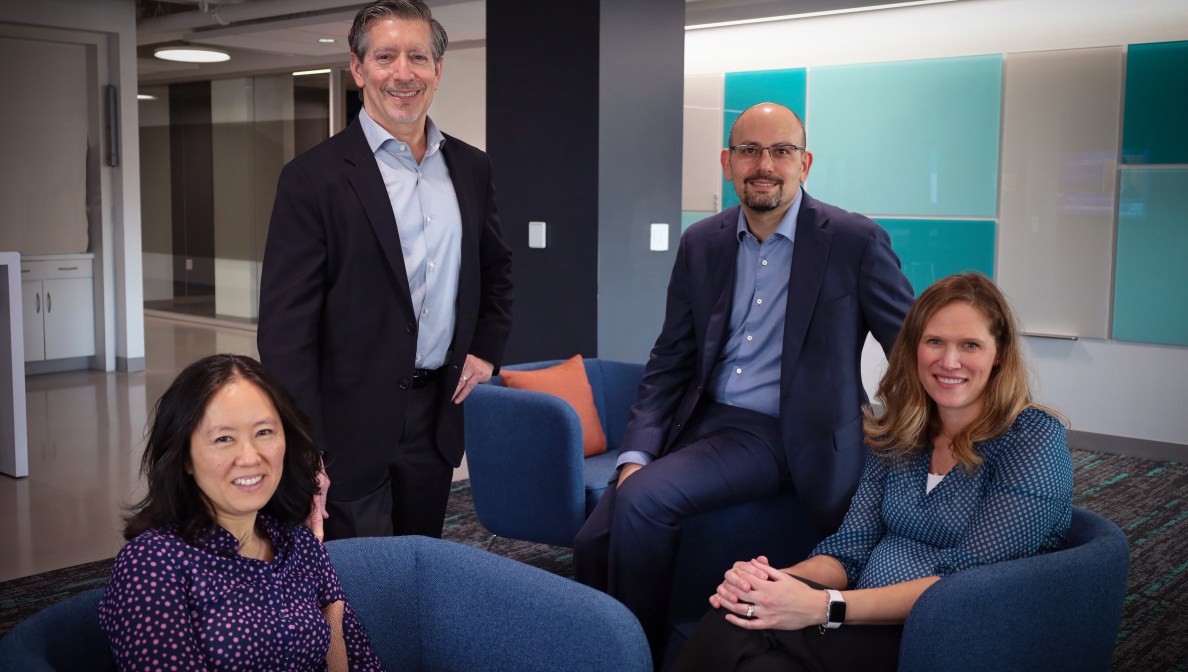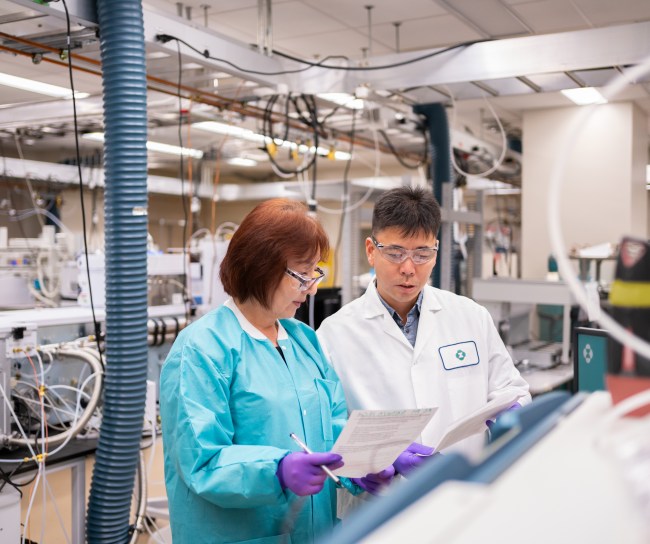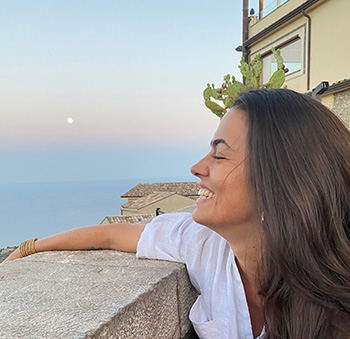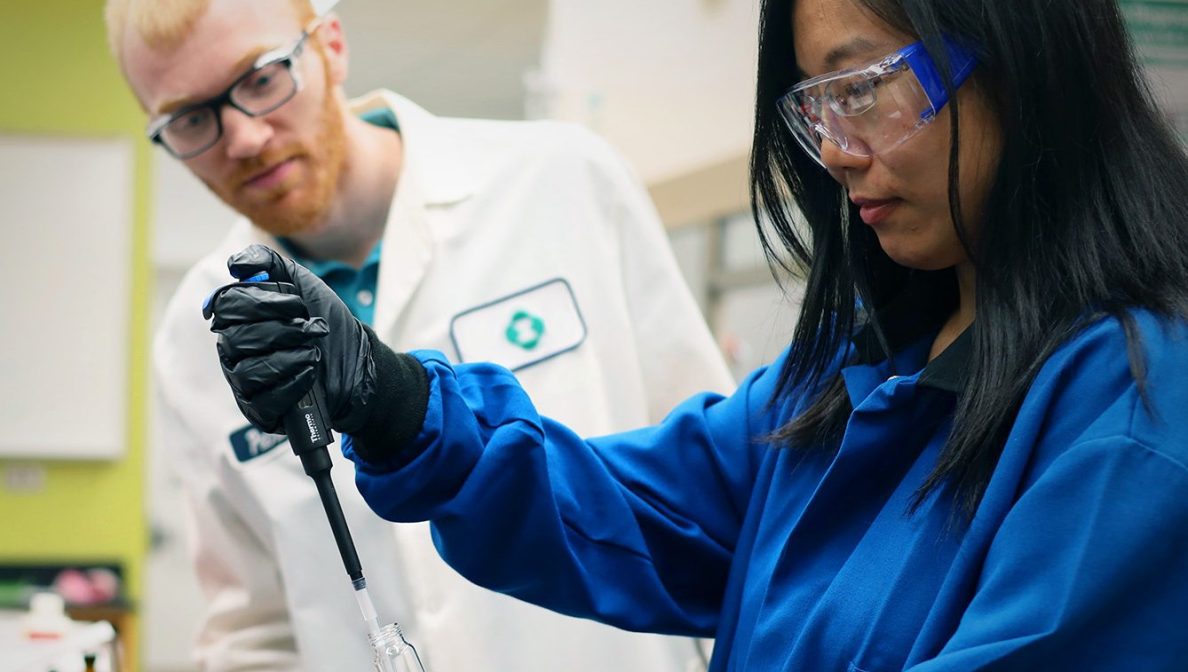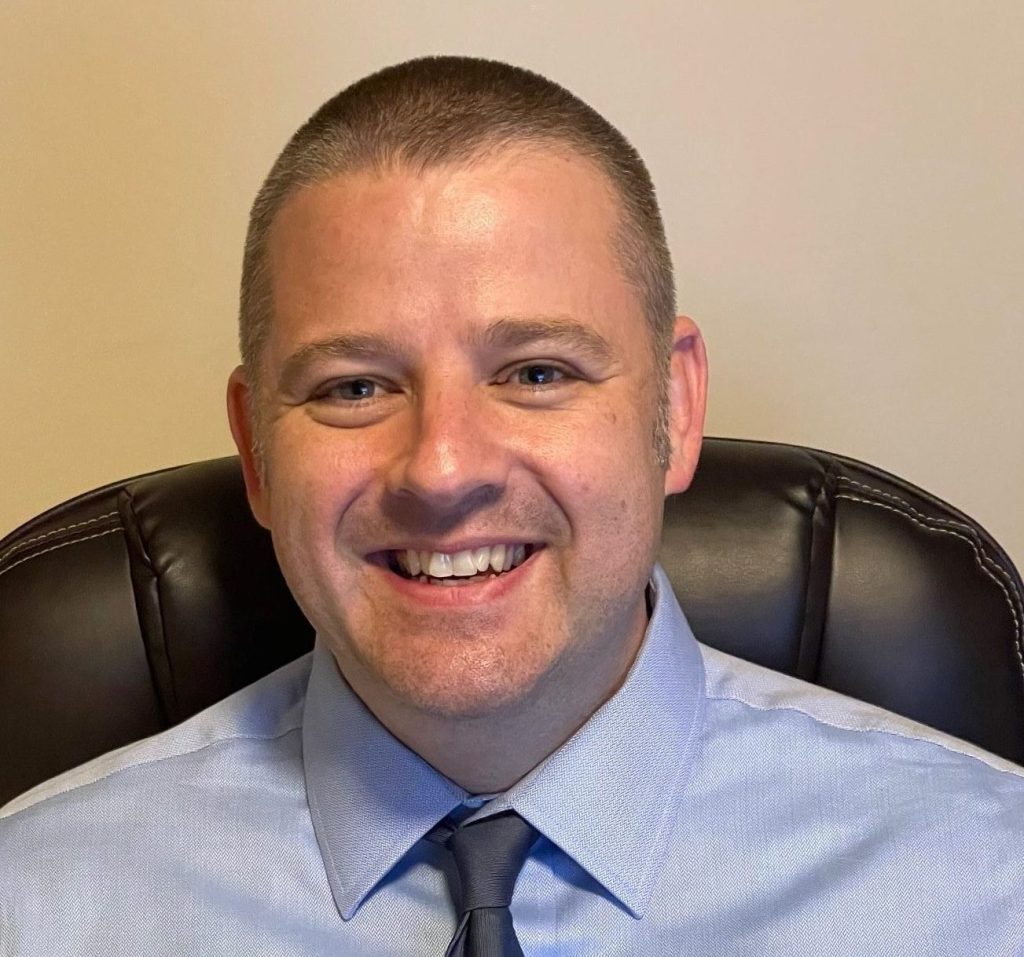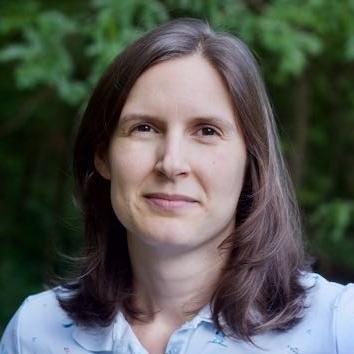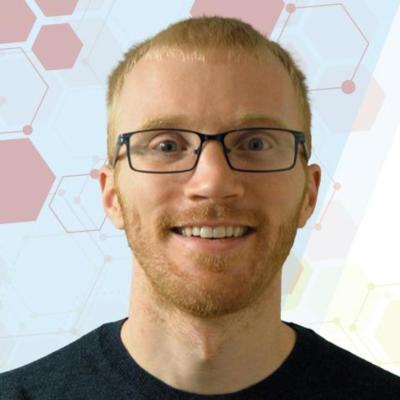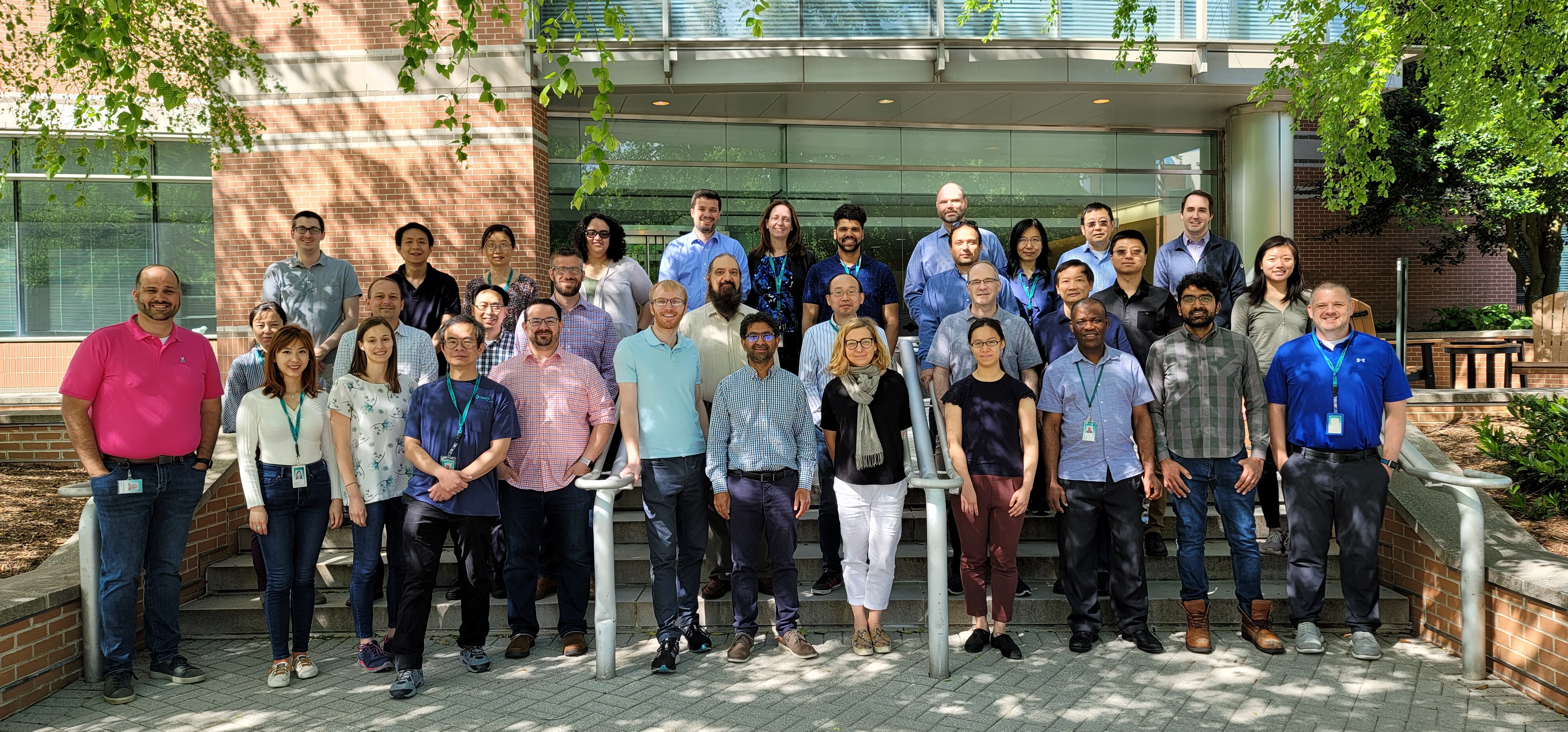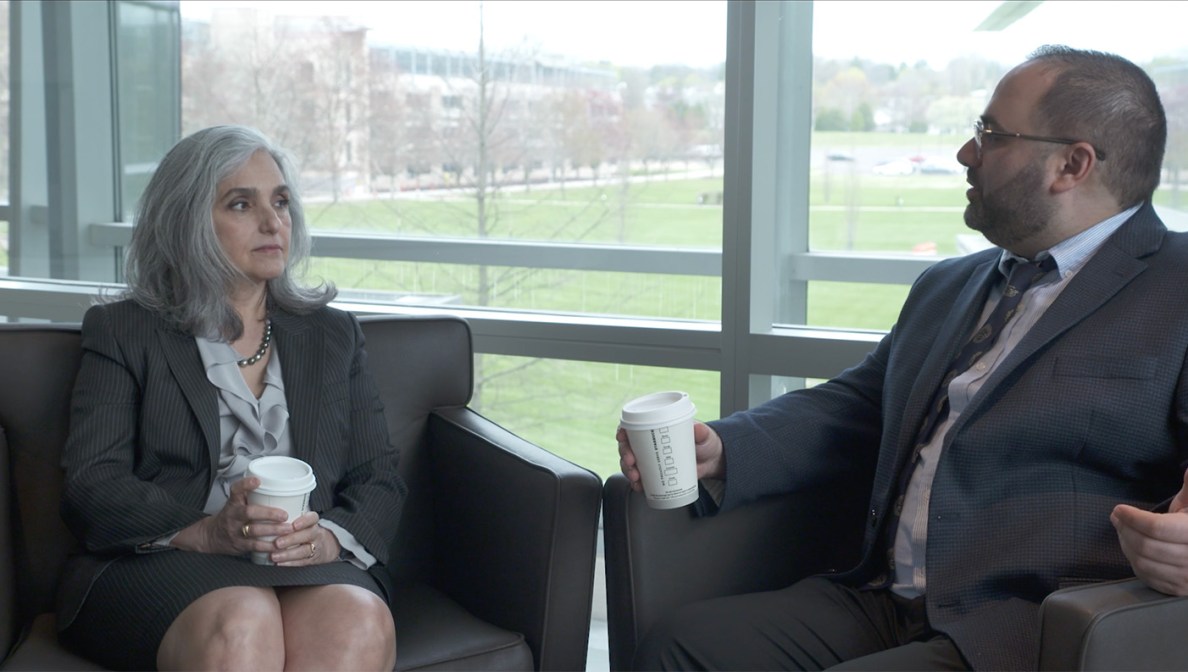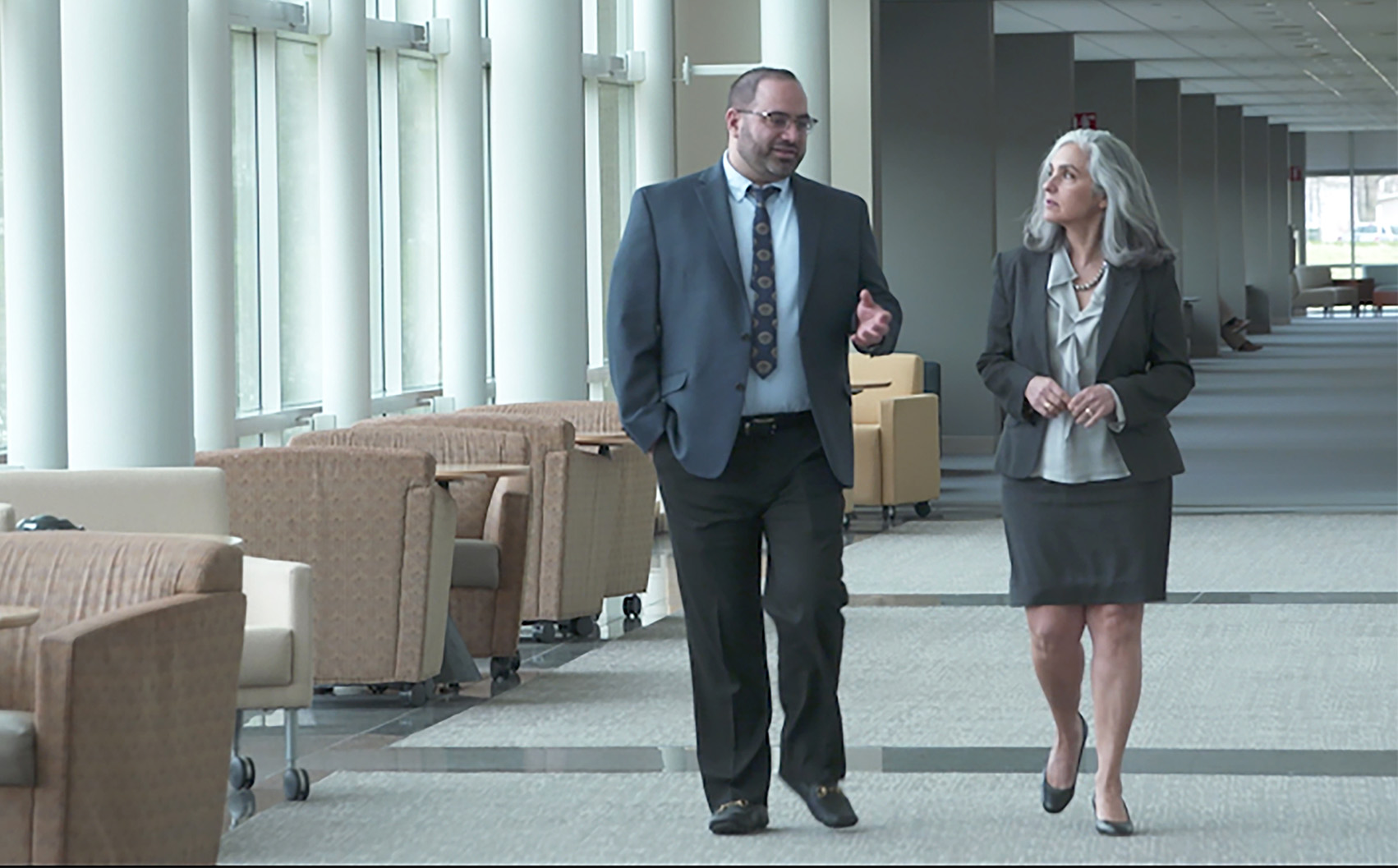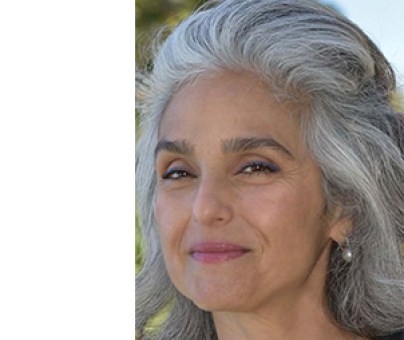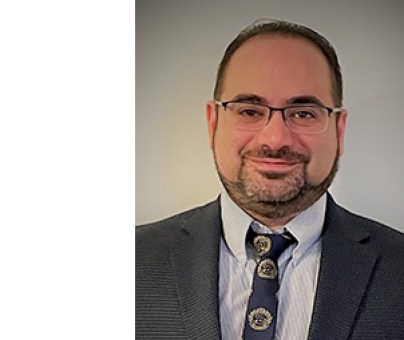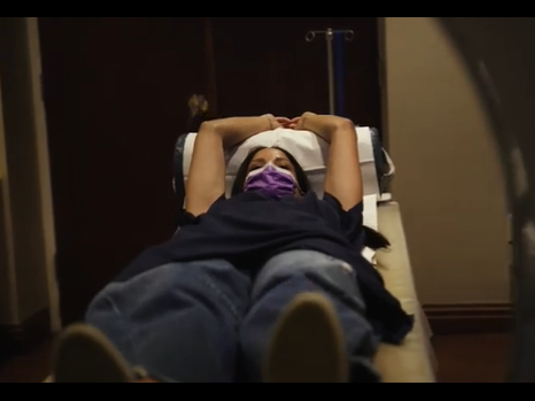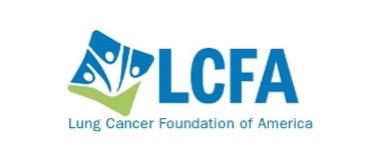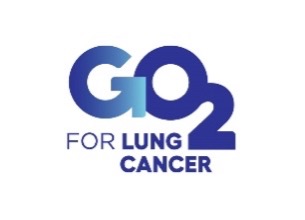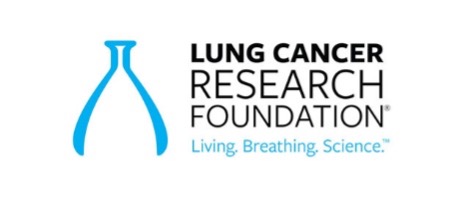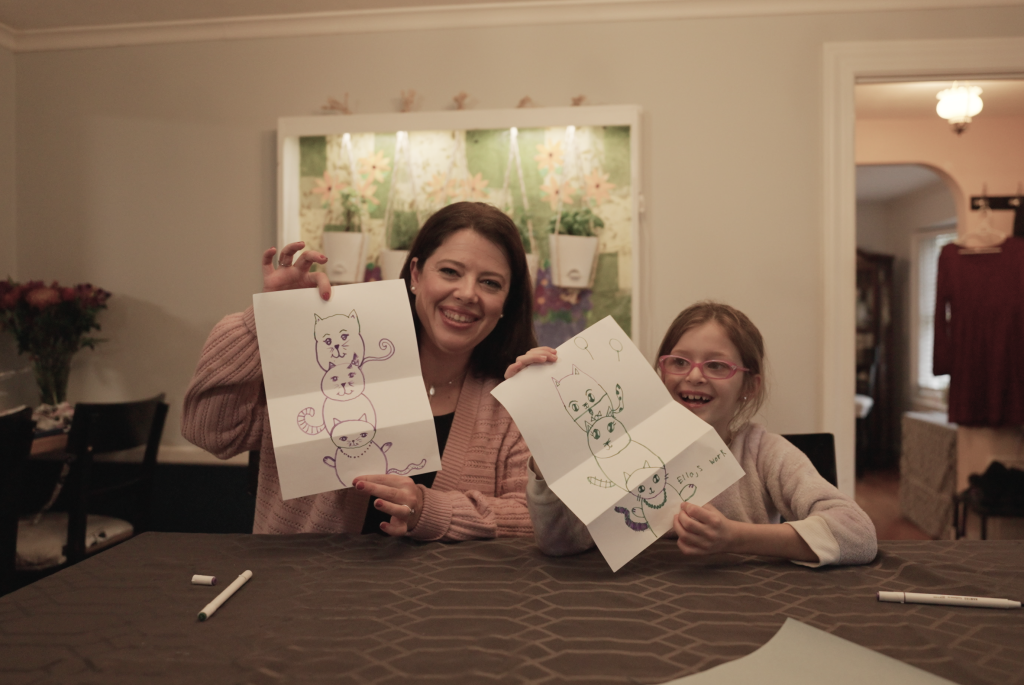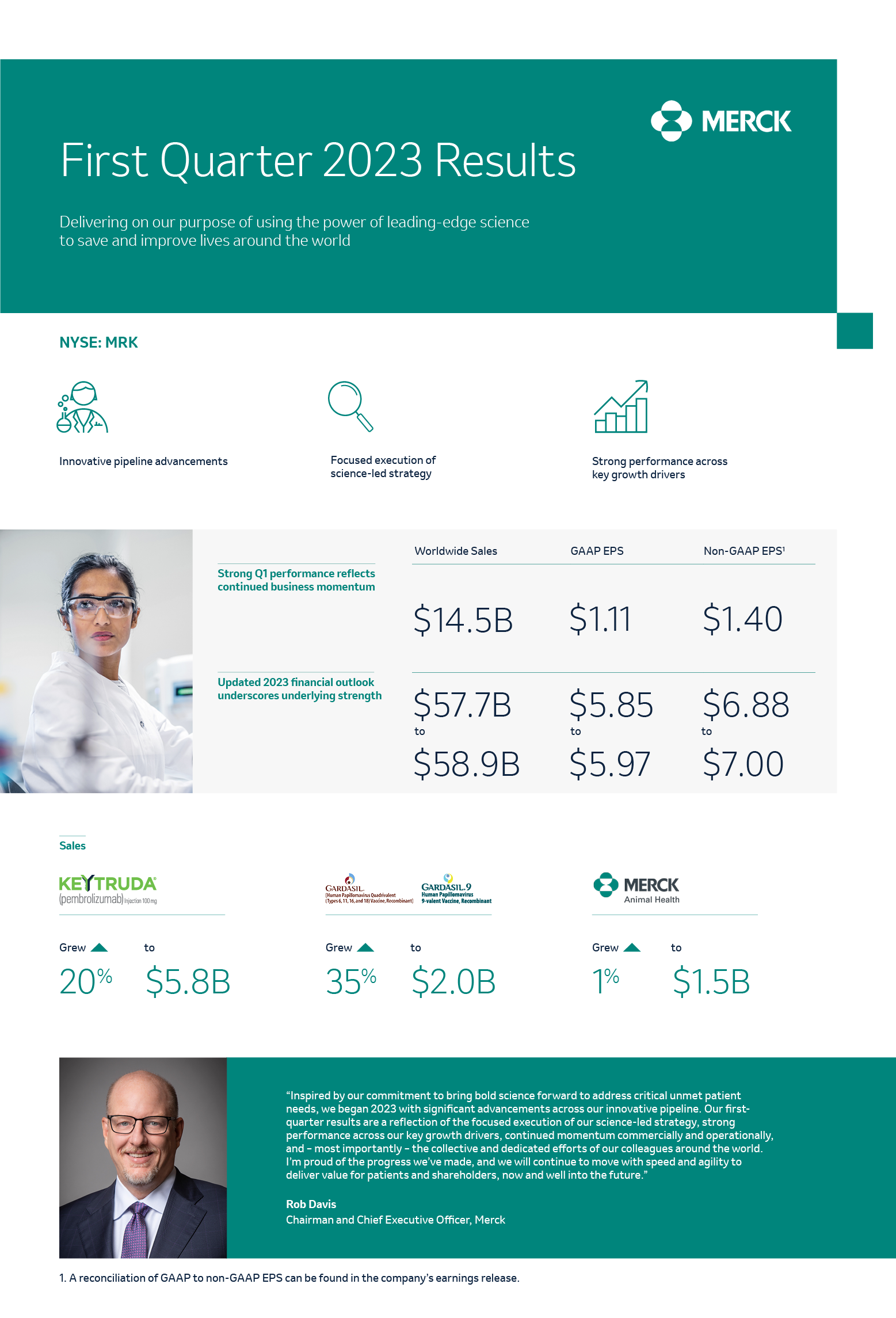Meet two women at the forefront of our HIV research
Two esteemed scientists share their motivations and hopes for the future of HIV research
July 18, 2023
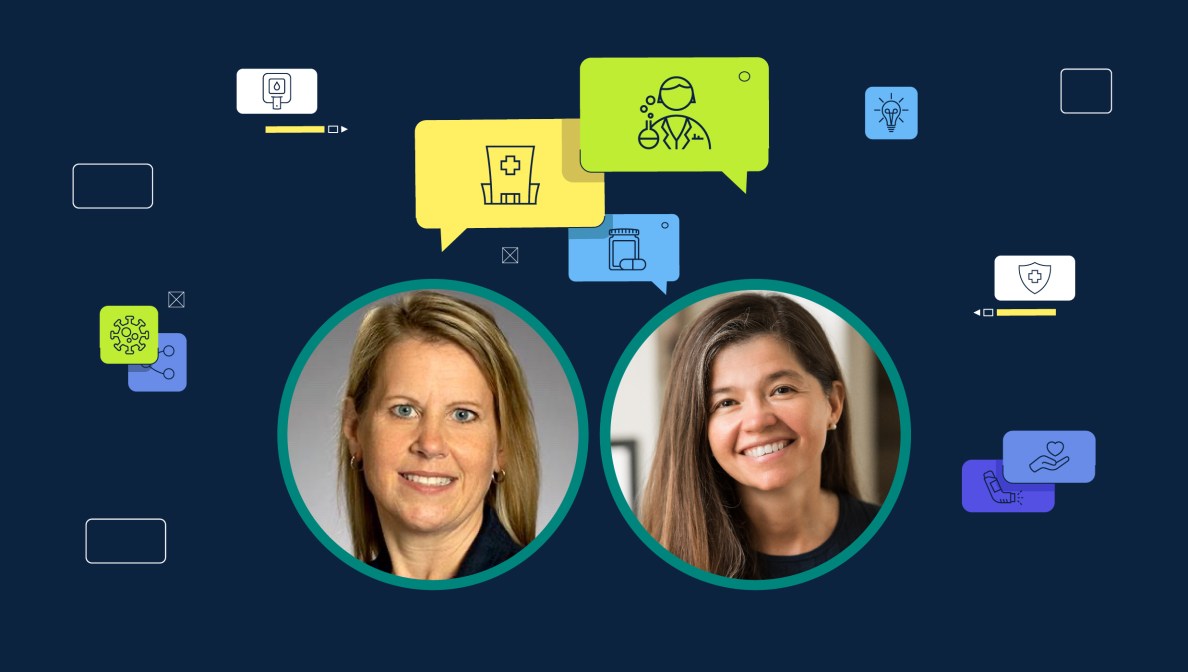
The field of HIV research has changed drastically in the past 40 years. In that time, we’ve evolved from helping people with HIV struggle to survive to seeing them fully thrive. Now we’re chasing a cure for HIV.
On top of a shift in focus, we’ve also seen a transformation in those who occupy the research space: more and more women are joining the fight.
We spoke with two of our own researchers who are leading the charge, Bonnie Howell, Ph.D., and Rebeca Plank, M.D., about what drives them, what’s changed, and what’s next in the HIV research landscape.
What drew you to HIV research?
Plank: I think my interest was first sparked at home by my parents, who actually met doing public health work in Chile. But it’s funny, despite that background, I wasn’t pre-med in college. I was an anthropology major. But during my senior thesis, I worked on a project around HIV prevention messaging. That stuck with me.
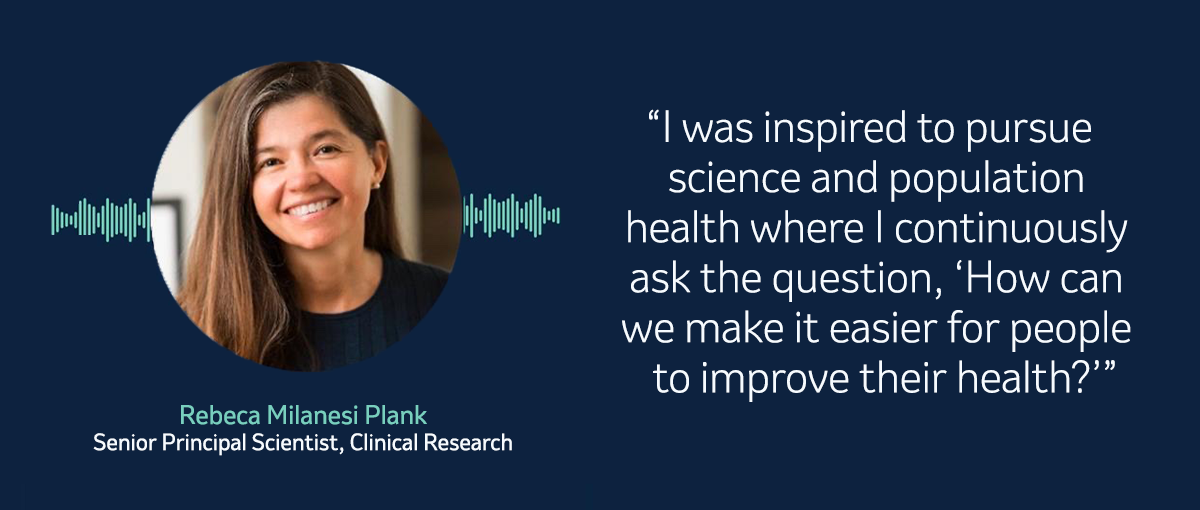
This includes making interventions relevant and accessible.
Howell: I can relate to that. I started working in HIV research after years of working in oncology and quickly recognized the unmet medical need. I realized that a lot of what I learned about cancer research could be applied to HIV as well.
I became passionate about HIV research because I saw it as an opportunity to change the storyline and apply my oncology experience to this different field.
In your mind, what’s been the biggest shift in HIV care?
Plank: I think the vast shift can be summed up by what I saw in med school. I was studying in San Francisco between 1996–2001, and I watched an inpatient hospital ward go from a place that housed critically ill people to a general medicine ward full of people rightfully expecting to feel better and go back home.
And that’s all due to the fast and impactful medical innovations — such as antiretrovirals to treat HIV — that helped save so many lives.
In a field that’s been historically male dominated, how does it feel to be a female in science and HIV research?
Howell: My experience is definitely unique because I’ve been at Merck for my entire career — and I’ve been constantly surrounded by powerful and brilliant women. It’s been a privilege to be a part of a company that champions diversity and inclusion and has empowered me to roll up my sleeves and contribute day in and day out to this important mission.
And I’m grateful for the chance to continue to add to the legacy Merck has established for itself in HIV — helping to change the way HIV has been treated since the start of the epidemic.
Plank: That said, there are still challenges facing women in HIV research. As a med student and also as a resident, it struck me that, looking around the hospital, there were relatively few women who were further along in their careers. It can be so important to see people succeeding who look like you, as role models and mentors — they show you what’s possible.
Howell: I completely agree. I also count myself lucky that I was mentored by female leaders who charted the course and were instrumental in increasing the number of women in research. Now I pay that forward and mentor the next generation of female researchers — especially those pursuing HIV.
Why do you think gender diversity is critical in HIV research?
Howell: Globally, women bear a huge brunt of this epidemic. A study in 2021 showed that 54% of all people with HIV are women and girls. Yet women are significantly under-represented in HIV clinical trials. We need to change that.
Equally important is making sure that the female perspective is represented within the HIV research community, so women with HIV can have advocates who share and understand their unique female experiences.
Plank: Prior to joining Merck, during my time doing field work in Kenya and Botswana, I learned a lot about the nuances and unique hardships of the female HIV experience. Globally, advocating for herself may not always be a woman’s first priority. Not to mention that the stigma of HIV is still too prevalent around the world, which may make it harder to seek care.
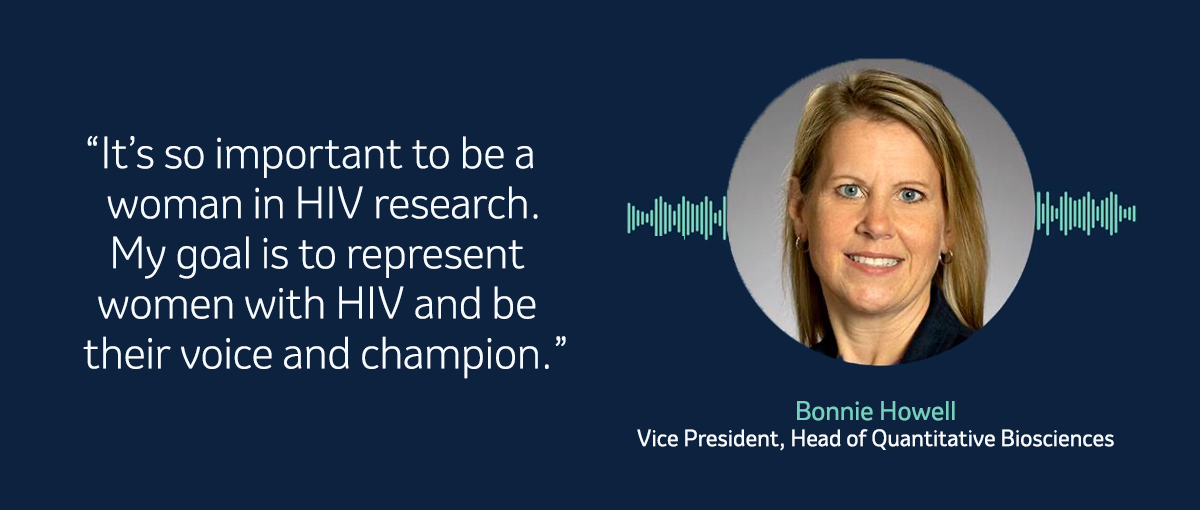
What advancement in HIV research do you hope to see during your lifetimes?
Howell: A cure. Whether that’s eradicating HIV from patients’ bodies or remission, where the virus still exists in the body but is controlled without lifelong treatment.
Plank: And then getting this cure — as well as other treatments and better methods for HIV prevention — to people in need, in the manner they need it. Access remains a huge issue, and part of that is the mode of treatment such as frequency of pills or injections. We hear consistently that having discreet treatment and prevention options would be critical.
What gives you the most hope?
Plank: So much can evolve in a single generation. These young women we’re working to help, someday they’ll be grandmothers. By empowering them with knowledge and by continuing our work in HIV, we hope to protect future generations.
Howell: The HIV community is so passionate and engaged, and we’re designing studies and treatments with those affected in mind. I’m excited to see what the future brings.
